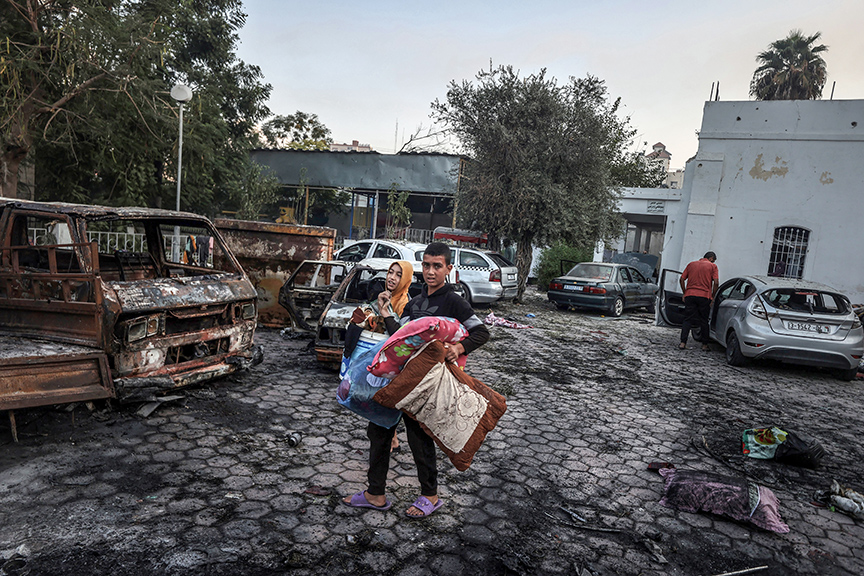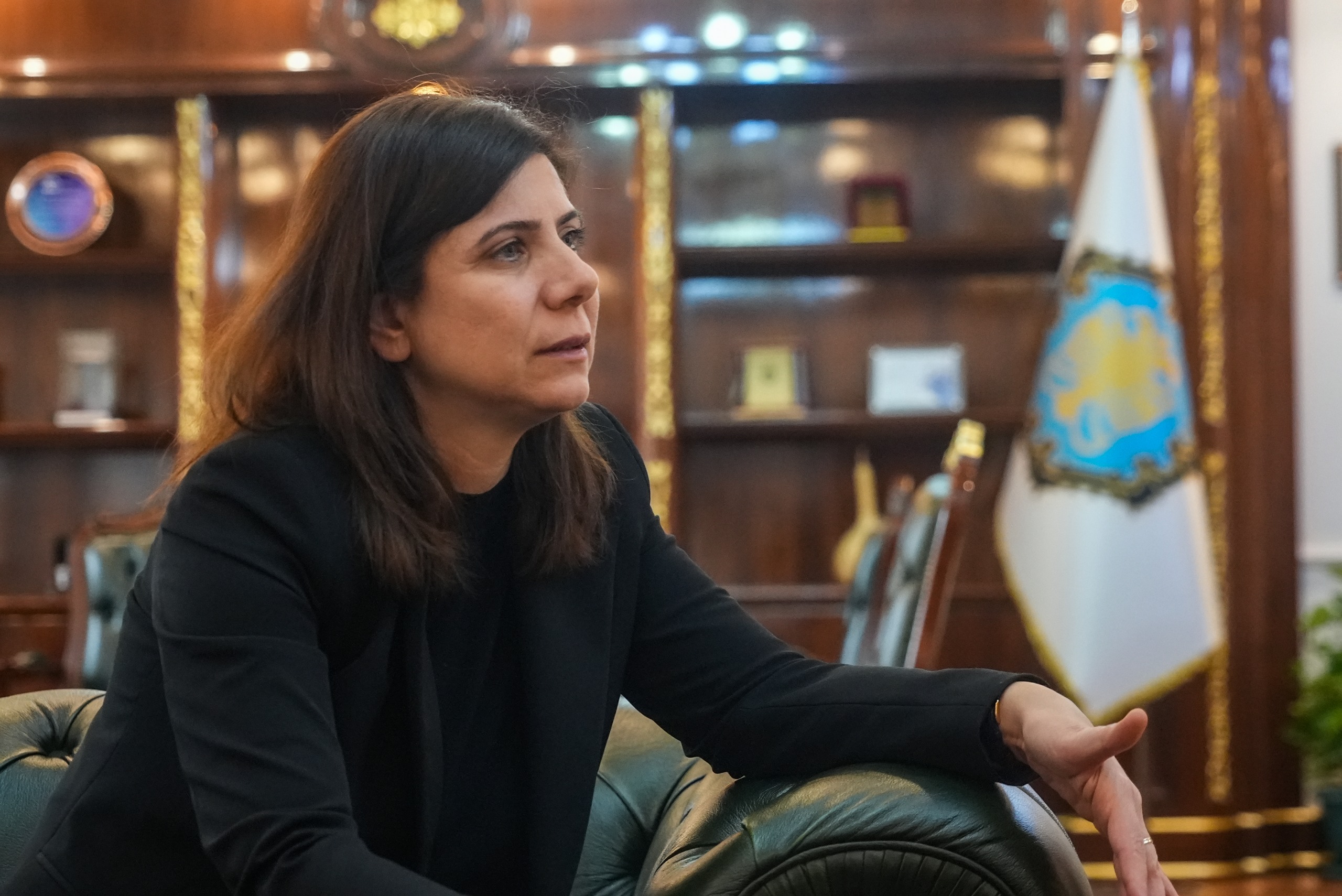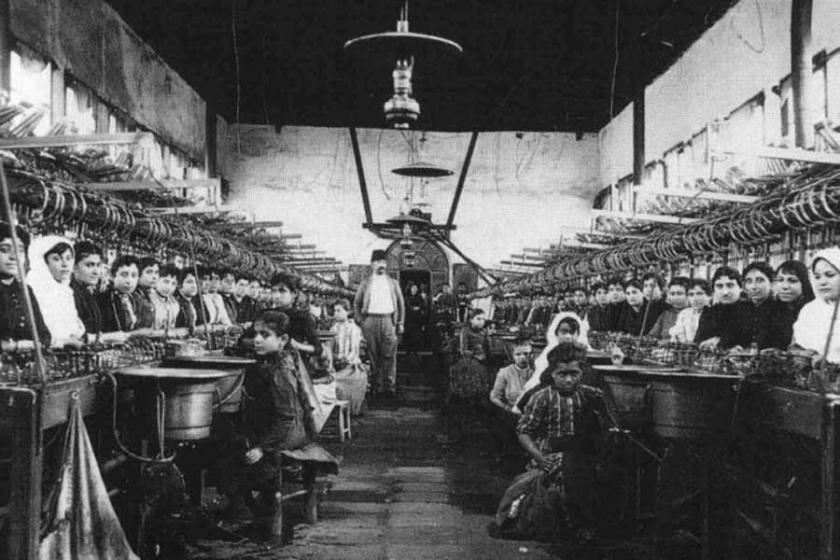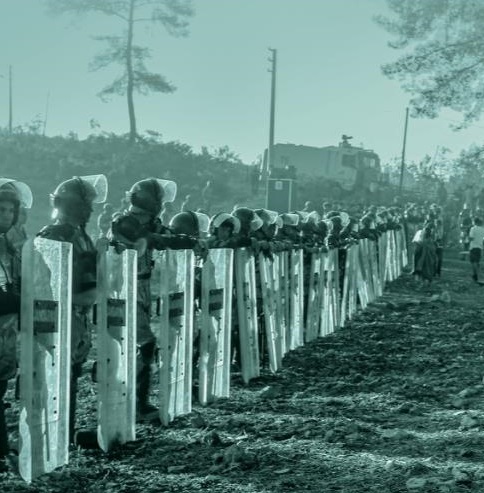Amnesty International has examined and documented Israel's policies and actions against the Palestinians in Gaza since 7 October 2023 and, within the framework of international law, has named what has happened and is happening: Genocide. This new 300-page report, the first of its kind, is based on interviews with 212 people, including Palestinian survivors, local officials in Gaza, health workers, humanitarian NGO workers, analyses of a wide range of visual and digital data, published news reports, and statements by officials representing various institutions of the Israeli state. We talked to Ruhat Sena Akşener, Director of Amnesty International Turkey, about the report titled ‘You Feel Like You're Not Human-Israel's Genocide against Palestinians in Gaza’, which leads to the determination of ‘genocidal intent’.
How will the difference between describing the Israeli state's practices against Palestinians after 7 October 2023 as war crimes or crimes against humanity and genocide manifest itself?
We have previously documented Israel's grave human rights violations and war crimes against Palestinians in our reports and shared them with the public. It should be underlined that genocide can occur together with war crimes and crimes against humanity. Within the scope of our research, we have documented that Israel has committed three of the five acts prohibited under the Genocide Convention.
What are these acts?
Killing group members, inflicting severe mental and physical harm on them, and subjecting them to living conditions calculated to lead to the physical destruction of the group. Israel has killed more than 42,000 Palestinians, including more than 13,300 children. As of January 2024, about 62 per cent of the houses in Gaza were damaged or destroyed. This affected about 1.08 million people. Amnesty International estimates that on average there is a damaged or destroyed building every 17 metres in Gaza. By destroying agricultural land and razing water and sanitation infrastructure, Israel has subjected Palestinians to a heavy, delibrated death toll. In 80 per cent of households, according to one survey, people went days and nights without food. At least 59 different ‘evacuation’ orders were issued against Palestinian civilians, and Israel displaced some 1.9 million Palestinians - 90 per cent of Gaza's population - in inhumane conditions. Some were displaced dozens of times. For months, it deliberately blocked the entry of life-saving supplies and aid.
Our investigators looked into whether all this was done with the intent to destroy. After analysing 102 Israeli officials' statements, there was no doubt about this either. Thus, our report makes it clear that Israel committed the acts prohibited by the Genocide Convention with the deliberate intention to exterminate the Palestinians in Gaza. There is, of course, a difference between war crimes or other violations and the crime of genocide in terms of the consequences under international law. Genocide is, according to the Rome Statute, ‘one of the most serious crimes for the international community as a whole’. Amnesty is of the view that there should be no hierarchy of crimes under international law, but the reason for focusing on genocide in this report is that the evidence we have gathered since 7 October about Israeli actions in Gaza has shown that these actions and policies should be considered within the framework of the Genocide Convention. Indeed, we have previously warned, as has the International Court of Justice, of the ‘risk’ of genocide. The gravity of this offence, the scale of the immense destruction and suffering of the Palestinian people in Gaza, and the relentless continuation of the violations, have made it all the more urgent that we make a determination about the nature of these atrocity crimes.
What are the implications of this report and how does Amnesty International plan to follow up on these crimes?
What distinguishes genocide from other crimes is the concept of genocidal intent. We were faced with the fact that we had to show that Israel intended to exterminate, in whole or in part, the Palestinians in Gaza. This is a difficult thing, it took many months of scrutiny to conclude that Israel did indeed intend genocide. It is also the first time that Amnesty, or any international human rights organisation at this level, has attempted to use legal analysis during a conflict to conclude that genocide is taking place.
As you know, the International Court of Justice (ICJ) is hearing a case brought by South Africa in December alleging that Israel violated the Genocide Convention during its military attacks on Gaza since 7 October 2023. Due to the nature of international legal processes, it can take years for the ICJ to reach a decision, but the court accepted this application and issued three interim orders to Israel to prevent and punish acts in violation of the convention. This was significant. Also on 21 November, the International Criminal Court (ICC) issued an arrest warrant against Israeli Prime Minister Binyamin Netanyahu and former Defence Minister Yoav Gallant on the basis that there were reasonable grounds to charge them with murder and persecution as crimes against humanity, as well as starvation, a war crime. The court has not yet added genocide to the charges. Therefore, with this finding of genocide, we urged prosecutors and judges to consider adding the offence of genocide to arrest warrants. The definition in the Genocide Convention was included in the statutes of the International Criminal Tribunal for the former Yugoslavia and the International Criminal Tribunal for Rwanda. Genocide is also a crime under Article 6 of the Rome Statute and falls within the jurisdiction of the ICC.
We want them to be tried for genocide, not war crimes, and this is one of the big differences that the report can make. We have no doubt that the judges and all those involved in the case will take into account the evidence we present in the report, which is based on the points in the 1948 Genocide Convention. We also call for further investigations into Israel by the UN Independent International Commission of Inquiry. We are already following, and sometimes even intervening in, international cases related to Israeli aggression. We will continue to do so until this genocide is stopped.
What are the implications of such a clear definition of genocide for countries that support the State of Israel in various ways?
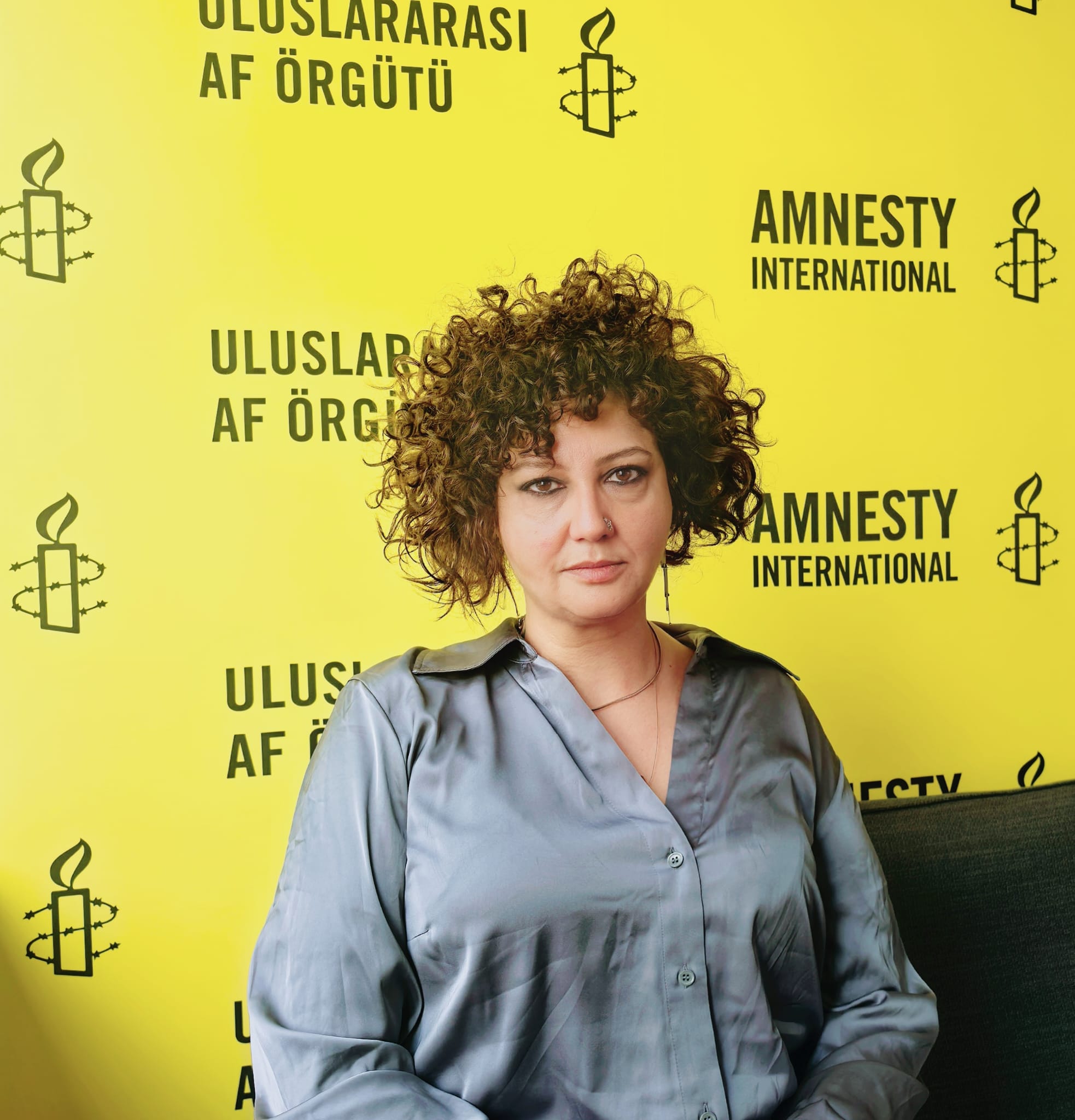
Our report focuses on the international responsibility of the state of Israel for the genocide. The scope of the report does not include an analysis of the possible complicity and responsibility of third states. However, as the genocide in Gaza continues, states that supply arms to Israel have failed to fulfil their obligations to prevent genocide under the Genocide Convention. In the last 14 months, governments such as the US, Germany and the UK have supported Israel. These states are also Israel's main arms suppliers. States that continue to transfer arms to Israel, particularly the United States, the largest supplier, risk becoming complicit in genocide.
Participation in genocide is a material offence under Article III of the 1948 Genocide Convention. Our branches around the world have shared the report with the authorities in their countries, along with a letter reminding them that they risk becoming complicit in the crime of genocide if they continue arms sales to Israel. We will continue to continue these dialogues. Again, with the decision, all 124 states parties to the Rome Statute, the founding treaty of the ICC, have entered into a legal obligation to arrest Netanyahu and Gallant after the ICC's arrest warrant and hand them over to the court in The Hague. Under the treaties they have signed, all states are obliged to act to ensure justice and pursue individual criminal responsibility for all crimes under international law, including war crimes, crimes against humanity and genocide. In addition, during these long months, the US has prevented the UN Security Council from taking action with its vetoes, which of course increases its responsibility. At this point, it can be said that it has indirect responsibility, but it is clear that the US has not fulfilled its obligation to prevent the genocide.
Since 7 October, the Palestinians have been living it all in full view, with a violence that cannot be denied, but can only be ignored. This long period of time seems to be a sign of a worrying lethargy, a frightening insensitivity on the part of the international community, and even a sign of a new and more murderous phase for humanity. Facts, documents, findings and evidence may not be able to change the opinion on what happened; universal rights seem to have lost their validity. How do international rights organisations experience such a situation within themselves?
Amnesty International is aware that there is resistance and hesitation in many states to recognise genocidal intent. Strong and sustained international mobilisation is needed to stop Israel's genocide. If the state of Israel is not punished and held to account for this genocide, which has been going on in front of the eyes of the world for 14 months with a decades-long foundation, faith in the mechanisms responsible for international justice and in the power of the international community will, unfortunately, disappear. Already, faith in the effectiveness of international mechanisms has been greatly diminished. If the international legal mechanisms do not take immediate and effective action, this will in a sense be the beginning of a new era.
What kind of a period is this?
It is a new era in a system where we know that these are the rules and mechanisms we have, but we see that they are not effective in any way. Under these conditions, states such as Israel and the USA, which do not recognise the rules of international law in any way and face no sanctions in return, will be able to continue their actions and existence. This means a very dangerous new era for rights. As an international rights organisation, of course, we are working to ensure that the reports on rights violations we publish based on reliable, real information and documents have a counterpart in the international legal system and that these crimes do not go unpunished. In the ongoing situation in Gaza, yes, many countries of the world and international legal mechanisms have been ineffective. Of course, it is necessary to see that the most important role in this issue is played by the powerful countries that supply arms to Israel, benefit financially from this genocide and prevent the prevention of genocide by remaining silent or supporting it. However, there is a rising demand for justice from the Global South. We have also seen that there are countries that endeavour to mobilise international legal mechanisms and create solutions, that still try to maintain the international legal system and protect this system, and this should not be underestimated. Especially at a time when international human rights organisations and international mechanisms, which are the main basis and struggle grounds of international human rights organisations, have become so worn out and ineffective, it is vital to mobilise international law, which has no alternative and is the only tool to ensure justice, and to restore the belief that crimes will not go unpunished. In my opinion, the belief in international law, hope and the ability of human rights organisations to continue their struggle depend on this.
A full summary of the report in Turkish can be read at https://www.amnesty.org.tr/


